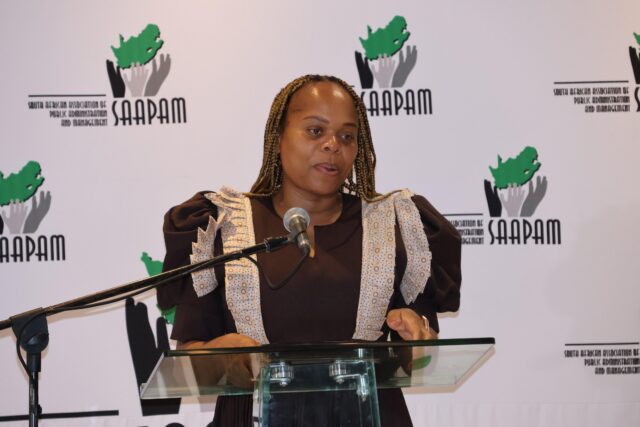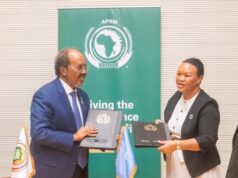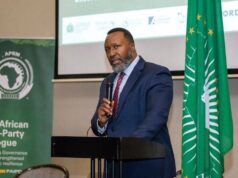Limpopo Premier, Dr Phophi Ramathuba says public service must be professionalised through merit-based appointments.
The Premier was speaking at the first day of the annual conference of the South African Association of Public Administration and Management (SAAPAM) where the influential leaders, experts, policy makers and academics are gathered under one roof in Thohoyandou town, Limpopo.
“The public service must be professionalised. Appointments must be based on merit, not patronage. Training and capacity development must be continuous, not sporadic…accountability must be enforced. Without consequences for wrongdoing, corruption festers and trust in government erodes,” she said.
Reflecting on the culture of public service, Dr Ramathuba said too often, the institutions are weakened by corruption, lack of accountability, and an erosion of professional ethics.
To build state capacity, the Premier said government must return to the fundamentals of integrity, competence, and consequence management. According to Premier Ramathuba, the 24th SAAPAM conference must be remembered not for its eloquence, but for its outcomes.
“It must stand as a turning point, where thought leaders, policymakers, and practitioners united around one mission: to build a capable, ethical, and developmental state that delivers.
“If we are to build a capable state, we must confront our governance challenges with honesty. We cannot ignore that many of our municipalities are in financial distress, some placed under administration, others struggling with poor audit outcomes year after year. When municipalities fail, service delivery collapses, and the promise of democracy becomes hollow.
“Conferences such as this should provide thought leadership on how to make coalition governance work in the South African context,” she said.
The Limpopo Premier said government cannot continue to govern with outdated systems when the world has moved into the digital era. “Technology too, must become our obsession.
“The COVID-19 pandemic exposed the gaps between those who could adapt digitally and those who could not. In the public sector, this divide is stark. Manual systems delay service delivery, breed inefficiency, and sometimes enable corruption.
“If we are to match world standards, we must embrace e-governance, digital skills, and technological innovation.
“Universities and institutions of higher learning must play a central role in equipping the next generation of public servants with these competencies. The 4th Industrial Revolution must not be a slogan; it must be a lived reality in the daily operations of the state,” she said.
In Limpopo, and particularly in the Vhembe District, citizens are facing complex public health challenges. According to the Premier, the District records unusually high incidences of renal failure, keloids, and breast cancer compared to other provinces.
“With the wealth of professors, researchers, and medical practitioners in our province, we should already have been at the forefront of groundbreaking research. Our universities must lead community-based research that tackles the unique socio-medical challenges we face. We must move from theory to applied solutions that improve lives in real time.
The 24th annual SAAPAM conference is convened under the theme “Building State Capacity – Prospects and Challenges.”









